 Get Therapy for College Students anywhere in Alabama
Get Therapy for College Students anywhere in Alabama
The College Mental Health Crisis: Innovative Therapies for Thriving Students
College represents a pivotal time of growth, self-discovery, and intellectual exploration. However, the pressures of academia, social life, and personal development can take a significant toll on students’ mental well-being. The college mental health crisis has reached alarming proportions, with over 60% of students reporting overwhelming anxiety and more than 40% experiencing debilitating depression in the past year.
Traditional approaches to mental health support, such as cognitive-behavioral therapy (CBT) and talk therapy, often fall short in addressing the complex, multifaceted challenges faced by college students. These modalities can lead to high dropout rates, as they may not fully capture the embodied, emotional experiences that shape students’ well-being. The time-limited nature of campus counseling sessions further compounds the difficulty of delving into the root causes of distress and fostering lasting transformation.
At Taproot Therapy Collective, we recognize the limitations of conventional approaches and embrace a holistic, integrative model of care. Our team of expert therapists draws upon a range of innovative modalities to address the unique needs of college students, from peak performance in athletics and academics to navigating emotional challenges and trauma.
Find out more about what research says about therapy for college students unique needs.
Therapy for Alabama And Auburn College Students and Athletes
One of the cornerstones of our approach is the use of cutting-edge technologies like QEEG brain mapping and neuromodulation. QEEG, or quantitative electroencephalography, measures the electrical activity of the brain, providing a detailed map of neural functioning. By identifying unique brain patterns associated with optimal performance, we can develop personalized strategies for enhancing focus, reducing anxiety, and promoting cognitive flexibility.
Neuromodulation techniques, such as neurofeedback, work by training the brain to self-regulate and optimize its functioning. During neurofeedback sessions, students receive real-time feedback on their brain activity, learning to consciously modify brainwave patterns associated with heightened stress, distractibility, or suboptimal performance. Research has shown that neurofeedback can effectively reduce anxiety, improve attention, and enhance overall cognitive function, making it a valuable tool for college students seeking to perform at their best.
For deeper understanding of how QEEG brain mapping and neurostimulation work, many students wonder what the experience actually feels like. We’ve created resources that explain what QEEG brain mapping and neurostimulation feel like during a typical session. This helps demystify the process for those considering this advanced option.
It’s also helpful to understand the difference between QEEG brain mapping, trans-cranial magnetic stimulation (TCMS), neurofeedback (MCNF), neurostimulation, and biofeedback, as these related but distinct modalities serve different purposes in optimizing brain function.
Brainspotting, developed by sports medicine doctor David Grand, is another powerful brain-based therapy that can rapidly release trauma stored in the body without extensive talk therapy. Brainspotting works by identifying specific eye positions that correlate with traumatic memories or emotionally charged issues. By maintaining focus on these “brainspots,” students can process and release deeply held emotional and physiological tensions, freeing up mental and physical resources for optimal functioning.
The neurobiology of trauma involves a dysregulation of the limbic system, the brain’s emotional processing center. Trauma can cause an overactivation of the amygdala, the brain’s fear response center, leading to hypervigilance, anxiety, and difficulty concentrating. Brainspotting helps to downregulate the amygdala and promote a sense of safety and calm, allowing students to access their full cognitive and creative capacities.
For college students juggling the demands of academics, extracurricular activities, and personal growth, brain-based therapies like neurofeedback and Brainspotting offer a targeted, efficient way to optimize brain functioning and unlock their full potential. By addressing the neurobiological underpinnings of performance, these modalities provide a foundation for thriving in the face of college’s many challenges.
The Gut-Brain Connection: Holistic Support for ADHD and Academic Success
For students navigating ADHD and academic challenges, Taproot offers a comprehensive approach that goes beyond medication and talk therapy. We recognize the critical role of the gut-brain axis in mental health and cognitive functioning, and incorporate holistic micronutrition for mental health as part of our integrative treatment plans.
Students often want to know how to treat ADHD and attention deficit disorder naturally, and our approach provides evidence-based alternatives and complements to conventional treatments.
The gut-brain axis refers to the bidirectional communication pathway between the gastrointestinal tract and the central nervous system. Research has shown that the gut microbiome, the complex ecosystem of bacteria residing in the digestive tract, plays a crucial role in regulating mood, attention, and cognitive function. Imbalances in the gut microbiome have been linked to a range of mental health challenges, including ADHD, anxiety, and depression.
Hardy micronutrition involves the targeted use of essential vitamins, minerals, and nutrients to support optimal gut health and brain function. By providing the building blocks for neurotransmitter synthesis, supporting the integrity of the gut lining, and promoting a balanced gut microbiome, micronutrition can help to alleviate ADHD symptoms, improve focus and concentration, and enhance overall academic performance.
In addition to micronutrition, we incorporate somatic and experiential therapies, such as Somatic Experiencing, Lifespan Integration, and Parts-Based Therapy to help students develop self-awareness, emotional regulation, and healthy coping strategies. These modalities engage the body’s innate wisdom and promote the integration of physical, emotional, and cognitive experiences.
Somatic Experiencing, developed by Dr. Peter Levine, is a body-oriented approach to healing trauma and chronic stress. It works by helping students to develop greater awareness of their physical sensations and to release traumatic stress through guided exercises and mindful attention. By learning to track and regulate their nervous system responses, students can develop greater emotional resilience and adaptability in the face of academic and personal challenges.
Lifespan Integration, created by Peggy Pace, is a gentle, body-based therapy that helps to heal early childhood trauma and attachment wounds. By guiding students through a timeline of their life experiences while maintaining dual awareness of the present moment, Lifespan Integration promotes the integration of neural networks and the resolution of unresolved emotional charges. This can lead to greater self-acceptance, improved relationships, and enhanced academic functioning.
For college students with ADHD, the combination of micronutrition, somatic therapies, and parts-based work offers a holistic approach to managing symptoms, reducing stress, and optimizing academic performance. By addressing the gut-brain connection and promoting the integration of mind, body, and spirit, these modalities help students to develop the self-awareness, self-regulation, and self-compassion needed to thrive in the face of college’s many demands.
Therapy for Neurodivergent and Autistic College Students
Increasingly, college students are recognizing their own neurodivergent profiles. Our approach focuses on embracing neurodiversity as a natural variation in human cognition rather than a deficit or disorder. We help students understand their unique cognitive styles and leverage their strengths while developing strategies for challenges.
For many students, college can trigger neurodivergent burnout as they try to adapt to neurotypical expectations and environments. We provide support for identifying burnout patterns and developing sustainable self-care practices.
The process of unmasking neurodiversity can be both liberating and challenging. Many neurodivergent students have spent years hiding their authentic ways of thinking and interacting, which takes a tremendous toll on mental health. Our therapists create safe spaces for exploring authentic identity.
We also specialize in supporting students with complex neurodevelopmental profiles, such as Ehlers-Danlos Syndrome with autism and ADHD, dyslexia and ADHD, and anxiety disorders with ADHD. For students experiencing depression and autism, we offer trauma-informed care that respects neurodivergent expressions of emotion.
Through meta-cognition and observing consciousness, neurodivergent students develop powerful tools for self-understanding and healing that work with, rather than against, their natural cognitive styles.
THerapy for Sexual Assault on College Campuses
Trauma and sexual assault is unfortunately common among college students, whether from pre-college experiences or incidents that occur during university years. At Taproot, we recognize the importance of prompt, trauma-informed therapy for survivors. Our team of specialists are trained in evidence-based modalities that target the neurobiological impact of trauma, promoting healing and empowerment.
The neurobiology of trauma involves a complex interplay of various brain regions and neurochemical systems. When a person experiences a traumatic event, the amygdala, the brain’s fear response center, becomes hyperactivated, leading to a cascade of physiological and emotional responses. This heightened state of arousal can persist long after the traumatic event has passed, leading to symptoms such as hypervigilance, intrusive memories, and emotional dysregulation.
Our therapists employ modalities like Brainspotting, EMDR therapy, and parts-based work to help survivors process and release the traumatic energy stored in their bodies and minds. These approaches target the subcortical brain regions involved in trauma processing, allowing for rapid and profound healing.
We also offer specialized support for students dealing with dissociation and amnesia, which are common protective responses to overwhelming trauma. Through gentle, trauma-informed therapy, we help students reconnect with themselves and regain a sense of continuity and control.
For students experiencing panic, mania, and anxiety disorders, we offer comprehensive treatment approaches that address both the psychological and physiological components of these conditions. Our anxiety treatment programs integrate cutting-edge neuroscience with proven therapeutic techniques.
In addition to these trauma-focused therapies, we recognize the value of integrating physical and emotional healing. Our network of referral partners includes myofascial release practitioners, Rolf massage therapists, and intuitive physical therapists specializing in pelvic floor work and releasing trauma from the body. By addressing the somatic imprints of trauma, we support survivors in reclaiming their bodily autonomy, safety, and wholeness.
Addressing Common College Challenges: Depression, Anxiety, and More
College students face a range of mental health challenges beyond trauma. Depression and mood disorders are particularly common, affecting academic performance, social relationships, and overall well-being. Our approach to depression treatment integrates biological, psychological, and social interventions, addressing both the symptoms and underlying causes of mood disturbances.
Anxiety and panic disorders can be debilitating for college students, interfering with their ability to attend classes, complete assignments, and engage in social activities. We offer evidence-based treatments that help students to regulate their nervous systems, challenge anxious thoughts, and develop effective coping strategies.
For students struggling with OCD and bipolar disorder, we provide specialized treatment approaches that address the unique challenges of these conditions. Our therapists are trained in evidence-based modalities for OCD, such as Exposure and Response Prevention (ERP), and for bipolar disorder, such as Interpersonal and Social Rhythm Therapy (IPSRT).
Anger management is another common concern for college students, who may struggle to regulate their emotions in the face of academic stress, relationship conflicts, and other challenges. We help students to identify the triggers and underlying causes of their anger, and to develop healthier ways of expressing and managing difficult emotions.
Specialized Support for Unique College Populations
College students are not a monolithic group, and different populations face unique challenges and stressors. Our practice offers specialized support for diverse student populations.
For example, women’s issues in college often include concerns related to gender-based discrimination, sexual harassment, body image, and reproductive health. Our women’s issues specialists provide a safe, supportive space for female students to explore these concerns and develop strategies for empowerment and self-care.
Similarly, men’s issues in college can include pressure to conform to masculine norms, difficulty expressing emotions, and challenges with identity development. Our therapists help male students to navigate these challenges and develop a healthy, authentic sense of self.
For LGBTQIA+ students, college can be a time of both liberation and stress. Our LGBTQIA+ affirming therapists provide a safe, accepting space for students to explore their gender and sexual identities, navigate coming out, and address discrimination and stigma.
Student athletes face unique pressures related to athletic performance and balancing sports with academics. Our peak performance enhancement services help athletes to optimize their mental game, manage performance anxiety, and navigate the challenges of student-athlete life.
For medical students and physicians experiencing burnout, we offer specialized support with therapists who understand the unique pressures of medical education and practice. Our approach addresses both individual and systemic factors contributing to burnout, helping medical students and physicians to reclaim their passion and purpose.
Executive coaching and professional burnout services support students in high-pressure professional programs, helping them to develop sustainable work habits, effective leadership skills, and strategies for preventing and addressing burnout.
Cultivating Purpose and Resilience: Navigating the Hero’s Journey of College
The college years are a time of profound personal growth and transformation, a modern-day version of what mythologist Joseph Campbell called the “hero’s journey.” This archetypal journey involves leaving the familiar world of home, facing challenges and trials, and ultimately returning with new knowledge, skills, and a deeper sense of purpose.
At Taproot, we view the challenges of college not as obstacles to be overcome, but as opportunities for growth and self-discovery. Our therapists draw upon Jungian therapy and parts-based frameworks to help students navigate the hero’s journey of college, cultivating resilience, purpose, and a growth mindset along the way.
Jungian therapy, with its emphasis on archetypes and the collective unconscious, provides a rich framework for understanding the universal themes and challenges of the college journey. By exploring archetypes like the hero, the shadow, and others, students can gain insight into their own developmental process and find meaning in their struggles.
In addition to these therapeutic frameworks, we recognize the importance of cultivating a growth mindset. A growth mindset is the belief that one’s abilities and intelligence can be developed through dedication and hard work, as opposed to being fixed traits. By embracing a growth mindset, students can reframe academic and personal challenges as opportunities for learning and development, rather than as threats to their sense of self-worth.
Meditation and mindfulness practices are also valuable tools for college students, helping them to develop greater awareness, present-moment focus, and emotional regulation. Our mindfulness-based interventions integrate traditional contemplative practices with modern neuroscience, offering students practical tools for managing stress and cultivating inner peace.
Hybrid Teletherapy: Accessible, Flexible Support for Busy College Students
At Taproot Therapy Collective, we understand that college students lead busy, complex lives, and that accessing high-quality mental health care can be a challenge. That’s why we offer a hybrid approach to therapy, combining in-person sessions with teletherapy for trauma in Birmingham, Alabama and surrounding areas.
Our hybrid model allows students to receive cutting-edge treatments like QEEG brain mapping and Brainspotting in our office, while continuing their supportive counseling and skill-building work through secure, HIPAA-compliant teletherapy sessions. This approach is particularly well-suited to the needs of college students, who may have irregular schedules, travel frequently, or simply prefer the convenience and privacy of receiving therapy from their own living space.
For students with limited mobility or who live far from our physical office, we offer comprehensive sliding scale somatic teletherapy for trauma in Alabama, making quality trauma care accessible to all.
Research has shown that teletherapy can be just as effective as in-person therapy for a wide range of mental health concerns, including anxiety, depression, and PTSD. In fact, some studies suggest that teletherapy may even have advantages over in-person therapy, such as increased access to care, reduced stigma, and greater flexibility in scheduling.
Our therapists are trained in providing engaging, effective teletherapy services that prioritize the therapeutic relationship and create a sense of warmth, safety, and connection, even through a screen. We use a variety of tools and techniques to enhance the teletherapy experience, such as screen sharing, digital whiteboards, and interactive exercises.
Our Expert Therapists
At Taproot Therapy Collective, we have assembled a team of expert therapists with diverse training and specializations to meet the varied needs of college students:
- Dr. Jason Mishalanie brings expertise in trauma-informed care and integrative approaches to mental health.
- Dr. Haley Beech specializes in perinatal mental health and women’s issues, supporting female students through reproductive health concerns.
- Kristan Baer focuses on somatic experiencing, helping students reconnect with their bodies and process traumatic experiences.
- Pamela Hayes offers IFS, Somatic Experiencing, Lifespan Integration, and EMDR via teletherapy, making these powerful modalities accessible to students across Alabama.
- Joel Blackstock specializes in working with neurodivergent students and those with complex trauma histories.
- James Waites provides specialized support for medical students and physicians experiencing burnout.
Each of our therapists brings unique expertise and a deep commitment to supporting college students on their journey of healing and growth.
Conclusion: A New Paradigm for College Mental Health
The college years are a time of incredible growth, challenge, and opportunity, but they can also be a time of significant stress, anxiety, and mental health struggles. At Taproot Therapy Collective, we believe that by providing innovative, holistic, and accessible mental health care, we can empower college students to thrive, both academically and personally.
Our approach is grounded in the latest research on the neurobiology of mental health, the gut-brain connection, and the impact of trauma on the mind and body. We draw upon cutting-edge modalities like QEEG brain mapping, neurofeedback, Brainspotting, somatic therapies, and parts-based work to help students optimize their brain function, heal from trauma, and develop greater self-awareness and resilience.
We recognize that college students are complex, multifaceted individuals, with unique strengths, challenges, and identities. That’s why we take a highly individualized approach to care, tailoring our interventions to the specific needs and goals of each student we work with. Whether a student is struggling with ADHD, anxiety, depression, trauma, or issues related to neurodiversity or identity development, we have the expertise and compassion to help.
Our hybrid approach to therapy, combining in-person sessions with teletherapy options, reflects our commitment to making high-quality care accessible and convenient for all students. We believe that mental health should be a priority, not an afterthought, and we work to reduce the barriers that can prevent students from seeking help.
If you are a college student struggling with mental health challenges, know that you are not alone, and that help is available. At Taproot Therapy Collective, we are here to support you on your journey of growth, healing, and self-discovery. Contact us today to learn more about our services and to take the first step towards a brighter, more fulfilling future.
References
- American College Health Association. (2019). American College Health Association-National College Health Assessment II: Reference Group Executive Summary Spring 2019. Silver Spring, MD: American College Health Association.
- Eisenberg, D., Hunt, J., & Speer, N. (2012). Help seeking for mental health on college campuses: Review of evidence and next steps for research and practice. Harvard Review of Psychiatry, 20(4), 222-232.
- Thibault, R. T., & Raz, A. (2016). The scope of neuromodulation: a systems neuroscience perspective. Frontiers in systems neuroscience, 10, 41.
- Hammond, D. C. (2011). Neurofeedback with anxiety and affective disorders. Biofeedback, 39(1), 34-42.
- Grand, D. (2013). Brainspotting: The revolutionary new therapy for rapid and effective change. Sounds True.
- Kaplan, B. J., Rucklidge, J. J., Romijn, A., & McLeod, K. (2015). Patterns of nutrient intake in women with ADHD: challenges and opportunities. Frontiers in public health, 3, 11.
- Cryan, J. F., O’Riordan, K. J., Cowan, C. S., Sandhu, K. V., Bastiaanssen, S., Boehme, M., … & Dinan, T. G. (2019). The gut-brain axis. Physiological reviews, 99(4), 1877-2013.
- Payne, P., Levine, P. A., & Crane-Godreau, M. A. (2015). Somatic experiencing: Using interoception and proprioception as core elements of trauma therapy. Frontiers in psychology, 6, 93.
- Schwartz, R. C. (2013). Moving from acceptance toward transformation with Internal Family Systems Therapy (IFS). Journal of Clinical Psychology, 69(8), 805-816.
- van der Kolk, B. A. (2015). The body keeps the score: Brain, mind, and body in the healing of trauma. Penguin Books.
- Brown, N., Ashby, C., & Newman, T. (2020). Neurodiversity in higher education: A narrative synthesis. Higher Education, 79(3), 537-553.
- Jung, C. G. (1976). The Portable Jung. Penguin Books.
- Schwartz, R. C. (2021). No Bad Parts: Healing Trauma and Restoring Wholeness with the Internal Family Systems Model. Sounds True.
- Jung, C. G. (2014). Modern man in search of a soul. Routledge.
- Dweck, C. S. (2006). Mindset: The new psychology of success. Random House.
- Backhaus, A., Agha, Z., Maglione, M. L., Repp, A., Ross, B., Zuest, D., … & Thorp, S. R. (2012). Videoconferencing psychotherapy: A systematic review. Psychological services, 9(2), 111.
- Norwood, C., Moghaddam, N. G., Malins, S., & Sabin‐Farrell, R. (2018). Working alliance and outcome effectiveness in videoconferencing psychotherapy: A systematic review and noninferiority meta‐analysis. Clinical psychology & psychotherapy, 25(6), 797-808.
Alabama College Resources
Taproot Therapy Collective offers specialized support for students attending colleges and universities throughout Alabama. We understand that each campus has its own unique culture, pressures, and resources, and we tailor our approach accordingly.
Major Universities
For students at Alabama’s largest universities, we offer comprehensive mental health support:
- University of Alabama: Specialized support for students dealing with the pressures of attending a large, competitive university.
- Auburn University: Targeted therapy services for Auburn students facing academic pressure, social challenges, or mental health concerns.
- University of Alabama at Birmingham (UAB): Specialized support for UAB students, with particular expertise in helping those in demanding healthcare programs.
- Samford University: Tailored therapy services for students at this private Christian university, with sensitivity to faith-based concerns.
State Universities & Colleges
We also provide specialized support for students at state universities and colleges across Alabama:
- Jacksonville State University: Teletherapy services for JSU students dealing with academic stress, relationship challenges, or mental health concerns.
- University of Montevallo: Support for students at this public liberal arts university, with sensitivity to the unique pressures of arts and humanities programs.
- Troy University: Both in-person and teletherapy options for Troy students, including support for military-affiliated students.
- University of South Alabama: Teletherapy services for USA students, with particular expertise in supporting those in healthcare programs.
- University of Alabama in Huntsville: Specialized support for UAH students, with understanding of the unique pressures faced by those in STEM fields.
- Auburn University at Montgomery: Tailored therapy services for AUM students balancing academic demands with work and family responsibilities.
Community Colleges
Community college students face unique challenges, including balancing academics with work, family responsibilities, and financial pressures. We offer specialized support for students at:
- Jefferson State Community College: Both in-person and teletherapy options for Jeff State students juggling multiple responsibilities.
- Lawson State Community College: Tailored therapy services for Lawson State students, with sensitivity to the unique challenges faced by community college students.
- Shelton State Community College: Support for Shelton State students dealing with academic, personal, or mental health challenges.
- Gadsden State Community College: Therapy services for Gadsden State students, with understanding of the unique pressures of community college life.
Historically Black Colleges and Universities (HBCUs)
Alabama has a rich tradition of historically Black colleges and universities (HBCUs), and we offer culturally sensitive, trauma-informed care for students at these institutions:
- Alabama State University: Specialized support for ASU students, with understanding of the unique cultural and social context of HBCU experience.
- Alabama A&M University: Tailored therapy services for A&M students, with sensitivity to the unique pressures and strengths of the HBCU community.
- Tuskegee University: Support for Tuskegee students, with respect for the university’s rich history and traditions.
- Miles College: Therapy services for Miles College students, with understanding of the unique challenges and strengths of small HBCU communities.
Comprehensive Support for All Alabama College Students
For students at any college or university in Alabama, we offer a comprehensive teletherapy program that makes quality mental health care accessible regardless of location. Our teletherapy services are designed to accommodate busy schedules, limited transportation, and the need for privacy and confidentiality.
In addition to our college-specific resources, we offer therapy services in numerous communities throughout Alabama, making it easier for students to access care whether they’re living on campus or commuting from home. From Birmingham to Huntsville, Mobile to Montgomery, we’re committed to making mental health support accessible to students across the state.




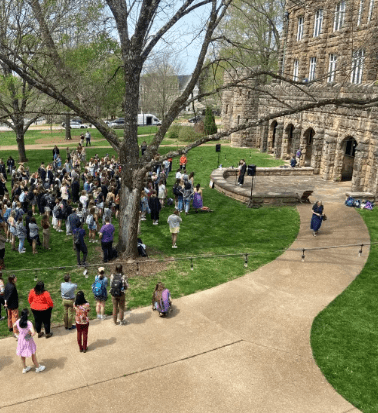








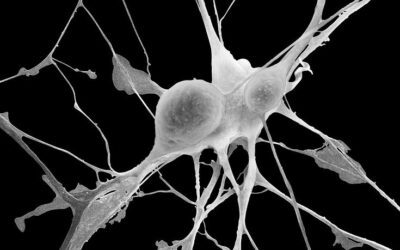

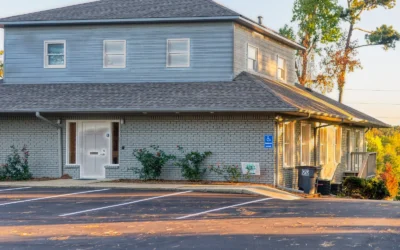





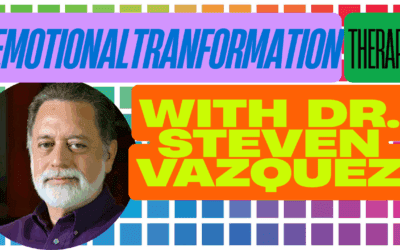



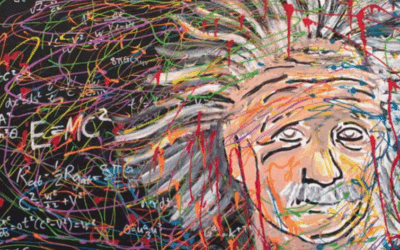




0 Comments